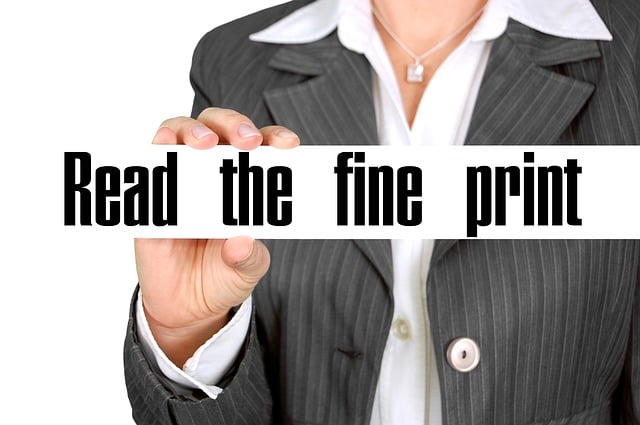UK Historical Documents Translation Services play a vital role in preserving and sharing Britain's rich history, ensuring ancient texts, records, and artifacts remain accessible. These services go beyond word-for-word translations, requiring linguistic experts with historical context knowledge to accurately convey the intended meaning and emotional weight of old languages. Reputable providers employ skilled translators who understand the nuances of ancient languages, cultural sensitivity, and rigorous quality control for accurate translations. They use advanced digital tools like neural machine translation, followed by human experts, to maintain cultural integrity. Best practices include comprehensive research, interdisciplinary collaboration, adherence to linguistic standards, and specialized software for translation memory and term management, ensuring high-quality translations that preserve historical integrity.
In today’s globalized world, ensuring accurate historical translations is paramount. Accurately translating ancient texts not only preserves cultural heritage but also offers insights into our past. This article delves into the intricacies of quality historical translation, covering everything from understanding the significance to implementing best practices. We explore the challenges of preserving accuracy, guide you through selecting reputable UK Historical Documents Translation Services, and highlight the role of modern technology in enhancing traditional translations.
- Understanding the Significance of Historical Translations
- The Challenges of Preserving Accuracy in Old Texts
- Selecting Reputable UK Historical Documents Translation Services
- Expertise and Experience: What to Look For
- Utilizing Modern Technology for Traditional Texts
- Quality Assurance Processes in Historical Translation
- Case Studies: Successful Historical Translation Projects
- Best Practices for Ensuring Top-Tier Translation Accuracy
Understanding the Significance of Historical Translations

Historical translations play a pivotal role in preserving and sharing our collective past. Accurate translations of ancient texts, historical records, and cultural artifacts ensure that knowledge and narratives from bygone eras remain accessible to modern audiences. In the UK, where a rich historical tapestry is woven into every corner of society, these translation services are not just important—they’re essential. They enable scholars, researchers, and enthusiasts to navigate complex historical landscapes, fostering a deeper understanding of our shared heritage.
UK Historical Documents Translation Services don’t merely convert words from one language to another; they involve meticulous research, cultural sensitivity, and an eye for detail. Translators must grasp the nuances and connotations embedded in ancient languages to convey the intended meaning and emotional weight accurately. This specialized field demands experts who not only possess linguistic prowess but also a deep appreciation for historical contexts, ensuring that these translations stand as reliable testaments to the past.
The Challenges of Preserving Accuracy in Old Texts

The process of translating historical documents presents a unique set of challenges, especially when dealing with ancient texts that have survived over centuries. One of the primary difficulties is preserving accuracy while navigating the complex linguistic and cultural nuances of the original language. Old languages often lack modern equivalents, making it a delicate task to find appropriate translations for specialized terms and idiomatic expressions.
UK Historical Documents Translation Services play a vital role in ensuring the integrity of these ancient texts. Professional translators with expertise in historical languages and their context are essential to avoiding modern biases that might alter the original meaning. These services employ meticulous research, consultation with historical linguists, and adherence to strict quality control measures to deliver precise translations, thus safeguarding the authenticity of historical records for future generations.
Selecting Reputable UK Historical Documents Translation Services

When seeking UK Historical Documents Translation Services, it’s paramount to choose providers with a proven track record and expertise in navigating the nuances of historical texts. Look for companies that employ linguists specialized in both the source and target languages, ensuring an accurate reflection of historical context and terminology. Reputable firms will also have a deep understanding of the cultural and historical background, which is essential for preserving the integrity of ancient documents.
Verify their experience handling similar projects, especially those involving old or rare materials. Check client testimonials and case studies to gauge their proficiency in maintaining accuracy and sensitivity towards historical content. Additionally, ensure they adhere to industry standards and best practices, such as using specialized translation software and following strict quality control measures, to deliver high-quality translations that do justice to the original UK historical documents.
Expertise and Experience: What to Look For

When it comes to translating historical documents, expertise and experience are paramount. Translators working with UK Historical Documents Translation Services should possess a deep understanding of both the source language and the historical context in which the document was written. This involves not just mastering the technical terminology specific to the era, but also grasping the cultural nuances that can significantly impact the meaning.
Ideal translators should have years of experience handling ancient texts, archival materials, or period-specific literature. They must be adept at navigating complex linguistic structures and translating them accurately while preserving the original intent. The best professionals in this field often specialize in specific historical periods or regions, allowing them to offer a more nuanced and precise translation service tailored to UK Historical Documents Translation Services requirements.
Utilizing Modern Technology for Traditional Texts

In the realm of historical translations, where precision and context are paramount, modern technology offers unprecedented assistance to traditional text interpretation. UK Historical Documents Translation Services leverage advanced digital tools to bridge the gap between ancient languages and contemporary understanding. By employing machine translation software, linguistic experts can quickly process vast texts, ensuring a foundational level of accuracy. This initial step is crucial for preserving the integrity of historical documents as it allows for further refinement by human translators who bring specialized knowledge and cultural sensitivity.
For instance, these services employ neural machine translation, which goes beyond simple word-for-word conversion. It analyzes sentence structures and contextual nuances to deliver more natural and accurate translations. This technology is particularly beneficial for UK Historical Documents Translation Services, as it enables them to handle diverse historical texts, from medieval manuscripts to ancient legal codes, ensuring that the essence of these documents remains intact for future generations.
Quality Assurance Processes in Historical Translation

Historical translations demand meticulous attention to detail, especially when dealing with ancient texts from diverse linguistic backgrounds. Quality Assurance (QA) processes in UK historical documents translation services play a pivotal role in ensuring accuracy and preserving the nuances of the original text. These processes include rigorous proofreading, where translators carefully inspect their work for grammatical errors, inconsistencies, or misinterpretations.
Moreover, peer review is an invaluable step, where expert linguists and scholars cross-check the translation against the source text, cultural context, and historical records. This collaborative approach not only catches subtle errors but also ensures the translated document resonates with contemporary readers while upholding its historic integrity.
Case Studies: Successful Historical Translation Projects

Successful historical translation projects offer valuable insights into ensuring quality in UK historical documents translation services. One notable example involves the translation of medieval manuscripts from Old English to modern English. This project involved meticulous research into contemporary language usage and cultural nuances to accurately convey the original meaning. Scholars and translators collaborated with experts in history and linguistics to interpret complex passages, ensuring that the translated texts remain faithful to the source material’s intent.
Another successful case study focuses on translating ancient legal documents from Latin to English. This undertaking required a deep understanding of historical legal systems and terminologies. Translators employed specialized glossaries and consulted with legal historians to ensure precise translations. The project’s success lies in its ability to maintain the integrity of legal terms, making the translated documents useful for historical research and legal studies. These examples highlight the importance of comprehensive research, interdisciplinary collaboration, and adherence to linguistic standards in delivering high-quality historical translations.
Best Practices for Ensuring Top-Tier Translation Accuracy

When it comes to UK historical documents translation services, achieving top-tier accuracy is paramount. To ensure quality, translators should adhere to several best practices. Firstly, a deep understanding of both the source and target languages is essential. This includes familiarity with historical context, cultural nuances, and idiomatic expressions specific to each language.
Secondly, rigorous research is vital. Translators must consult multiple reliable sources, including contemporary dictionaries, academic texts, and historical archives, to capture the precise meaning of terms. Cross-referencing and comparing different translations of the same passage can also help avoid biases and maintain accuracy. Additionally, using specialized software for translation memory and term management can enhance consistency throughout the document.
Historical translations demand meticulous attention to detail, especially when preserving the nuances and cultural context of ancient texts. By selecting reputable UK historical documents translation services with expertise in this field, you can ensure that old texts are accurately represented for future generations. Utilizing modern technology alongside traditional methods and implementing rigorous quality assurance processes are key practices for achieving top-tier translation accuracy. As seen in successful case studies, following best practices guarantees the integrity of historical knowledge, allowing us to navigate and understand our past effectively.
